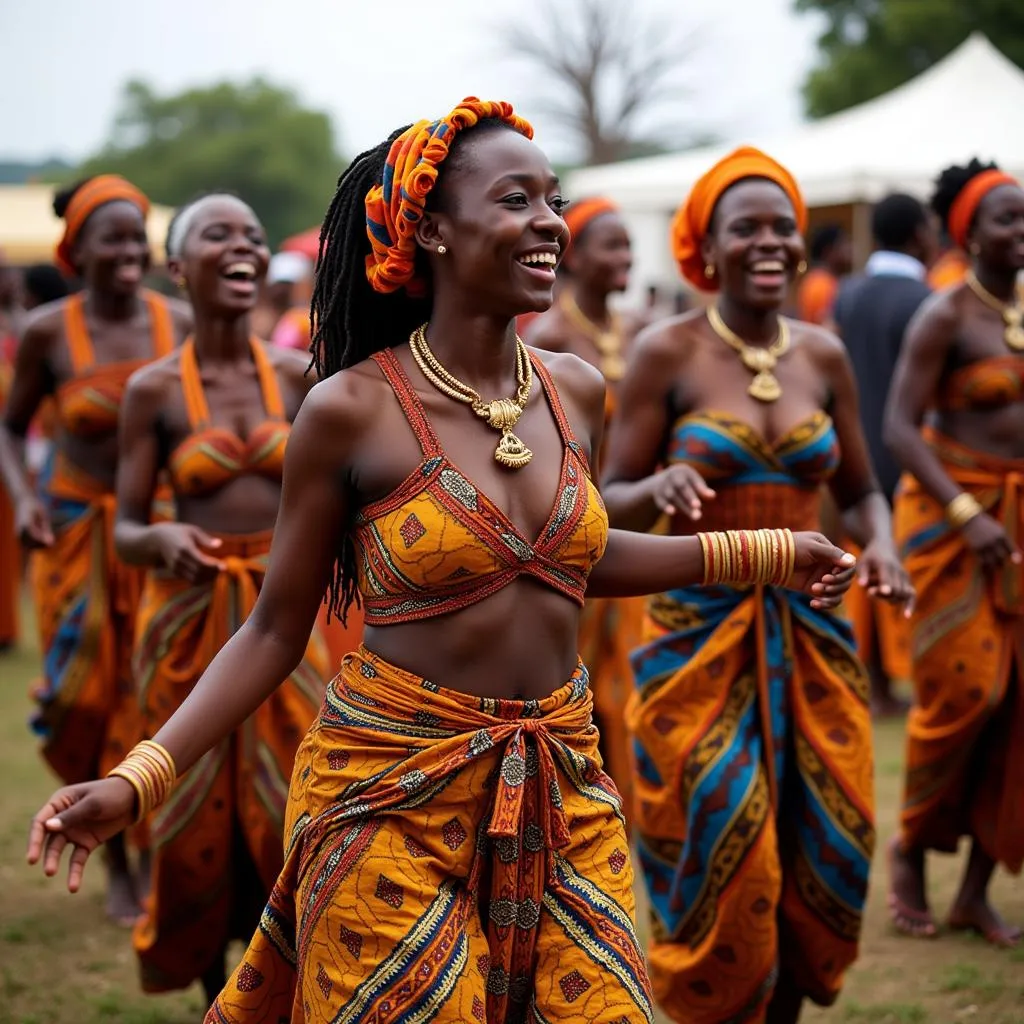African Genes Sports: Unlocking the Myths and Realities
The intersection of African genes and sports has been a topic of fascination and debate for decades. From the sprints of Usain Bolt to the marathon dominance of East African runners, the world has witnessed the extraordinary athletic prowess of individuals with African ancestry. This begs the question: are there specific African genes that contribute to these exceptional sporting achievements?
The Power of Genetics in Sports Performance
While attributing athletic success solely to genetics is an oversimplification, it’s undeniable that genes play a crucial role in shaping an individual’s physical and physiological characteristics. Genes influence muscle fiber composition, lung capacity, VO2 max (the maximum rate of oxygen consumption), and other factors that directly impact athletic performance.
For instance, the ACTN3 gene, often referred to as the “speed gene,” has been linked to the production of a protein called alpha-actinin-3, which is found in fast-twitch muscle fibers. These fibers are essential for generating explosive power and speed, giving individuals an advantage in sports like sprinting. Studies have shown a higher frequency of certain ACTN3 variants among elite sprinters of West African descent.
Beyond the “Speed Gene”: Unraveling the Complexities
However, reducing the narrative of “African Genes Sports” to a single gene or a handful of genes is a gross oversimplification. Athletic success is a multifaceted phenomenon influenced by a complex interplay of genetics, training, environment, socioeconomic factors, and cultural nuances.
East Africa, particularly Kenya and Ethiopia, has emerged as a hotbed for long-distance runners. While genetic predisposition might play a role, attributing their success solely to genes ignores the significant impact of factors like high-altitude training, a culture that encourages running from a young age, and socioeconomic conditions that incentivize running as a pathway to a better life.
Nurturing Talent: The Role of Environment and Opportunity
It’s essential to recognize that genetic potential is merely a starting point. Transforming that potential into exceptional athletic performance requires the right environment, access to quality training facilities, proper nutrition, and unwavering support.
south african premier division football leagues demonstrate the importance of infrastructure and structured development programs in nurturing talent. While genetic predisposition might exist within the population, it’s the presence of well-established leagues, academies, and coaching expertise that allows this potential to flourish.
Furthermore, cultural factors play a significant role in shaping sporting preferences and traditions. In many parts of Africa, running is deeply ingrained in daily life, serving as a primary mode of transportation and a means of fostering community bonds. This early exposure to running, coupled with a strong cultural emphasis on physical prowess, can contribute to the development of exceptional endurance and resilience.
A Global Perspective: Challenging Stereotypes and Celebrating Diversity
The narrative surrounding “African genes sports” should move beyond simplistic generalizations and embrace the rich tapestry of human genetic diversity. Focusing solely on specific genes or regions risks perpetuating stereotypes and overlooking the athletic achievements of individuals from diverse backgrounds across the globe.
african games results showcase the incredible athletic talent that exists across the African continent, spanning various sports and disciplines. These events celebrate not only individual achievements but also the power of sport to unite nations and inspire future generations.
Conclusion: Embracing the Complexity of Athletic Excellence
The relationship between African genes and sports is an intricate and fascinating area of study. While certain genetic variations might offer advantages in specific sports, it’s crucial to avoid deterministic conclusions.
Ultimately, athletic success is a testament to the remarkable adaptability and resilience of the human body. It’s a symphony of nature and nurture, where genetic predisposition intertwines with environmental factors, training, opportunity, and unwavering determination to create champions. As we celebrate the extraordinary athletic achievements of individuals with African ancestry, let’s remember to appreciate the multifaceted nature of human potential and the power of embracing diversity in all its forms.
FAQ
- Is there a single “sports gene” found in people of African descent?
No, there’s no single gene responsible for athletic success. Multiple genes contribute to athletic traits, and their interplay with environmental and training factors is crucial. - Why are East African runners so dominant in long-distance running?
Factors like high-altitude training, a culture of running, and socioeconomic incentives contribute significantly, along with potential genetic predispositions. - Do genetic advantages guarantee athletic success?
No, genetics provide a foundation. Realizing athletic potential requires dedication, training, nutrition, and opportunity. - Is the focus on “African genes sports” limiting?
Yes, it can perpetuate stereotypes and overshadow the achievements of athletes from diverse backgrounds globally. - How can we celebrate athletic excellence while acknowledging genetic diversity?
By recognizing the complex interplay of genetics, environment, culture, and opportunity in shaping athletic success, appreciating the unique contributions of every individual.
Need Help?
For further assistance or information, please contact us:
- Phone Number: +255768904061
- Email: [email protected]
- Address: Mbarali DC Mawindi, Kangaga, Tanzania.
Our dedicated customer support team is available 24/7 to answer your queries.
Explore More:
For a deeper dive into the history of sports in Africa, we recommend checking out our article on the african games 1965.

